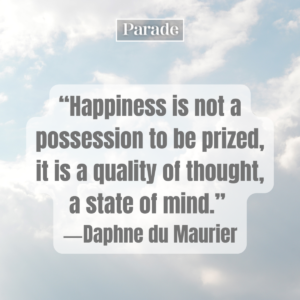Do You Know What You Are Worth?

We are not born knowing how to respect ourselves. That comes from external circumstances and experiences. Maybe the horoscope signs have a little effect too. I write that because I’ve read about horoscope signs and the traits of those born under the sign. Sometimes, it’s spot on, especially with the Leo sign. Almost every single Leo I’ve known had the same bossy, arrogant, and entitled attitude. That cannot be a coincidence since many are from different families. I’m a Gemini: the twins, creative, loyal, intelligent, great communicator, and that’s me.
I know there’s a fine line between doing something nice for someone and feeling good about it and doing something for someone and feeling used. Most of us can tell the difference, especially when there is little reciprocation from the other person, and it’s always all about them. It’s prevalent in families because many of us feel a sense of obligation and guilt if we don’t oblige others. There is often one family member who gets singled out as the person who will do anything asked of them without a fuss. What happens to this person when they’re an adult?
If children are not respected when they are young, in the developing years, the pattern seems to continue to adulthood. Why? It isn’t easy to know your worth when you haven’t received much acknowledgment of it. Knowing your worth is everything in life. It shows us what we believe we deserve and that it’s perfectly okay to set boundaries for our well-being.
Does that mean bossy, bully-type people have more self-worth than others? Not necessarily. They appear to have no remorse or desire to treat people (they deem not that important) with respect, but they are also hurt people, and the arrogant behavior is just a smoke screen to hide their inner child in pain.
How we are raised has the most profound effect on our personality and our inner beliefs. Suppose we experience feeling left out, worthless, or unloved. In that case, we grow up to be adults who feel unworthy, unable to love or receive love, and are co-dependent people who don’t know when to say no or how to put ourselves first (usually with family members, but it could be a boss, co-worker, or even a friend. It is usually with someone we deem more important than ourselves.)
To figure out what you believe you’re worth, examine your close relationships. Do you feel loved and appreciated, or do you accept disrespect or feel used?
Anytime someone speaks or does something, and you feel hurt, you can either communicate how you feel (if the relationship is important to you), and if the other person acknowledges their part and respects your feelings, great; if not, you have to make a decision whether or not to continue that relationship for the well-being of your self-worth. There is no other choice because if you don’t share how you feel, then any relationship you have with that person will always be tainted by hurt feelings that lead to anger and resentment. Blow-ups happen when somebody held in their unexpressed feelings too long.
We are emotional (feeling) beings. That’s what is going to elevate our species from the androids when they walk among us, and they will. Software engineers cannot write feelings. They could try, but they will never succeed. Feelings come from a soul, a personality, the essence of each of us. When we deny them (mostly done because as a child we didn’t feel safe to express our feelings), either as a tough person who believes people who express their feelings are weak (learned belief), or someone who doesn’t know their self-worth and won’t rock the boat, they don’t just go away like bugs in winter. They stay with us and more feelings get layered on top of existing unexpressed ones, and eventually, something will happen that acts as a warning sign telling us to pause and get a better grip on life.
Life is meant to be lived and loved. When we don’t know our worth, we allow outside circumstances to tell us what it is. That’s backward. When we know our worth, we have a say in what we do, communicate and experience – and that’s what makes us feel happy!

Who is this person who doesn’t want to be happy? I listen to people speak, even ones I meet briefly while waiting in a line, and hear so much complaining about this or that: the weather, their bad luck, or their cat got stuck in the dryer. Oh my goodness, I hear a lot of negativity! And you know what that does to an empathic person like me? It weighs me down, and the heaviness gets to me. Absorbing negativity keeps me stuck. It does that to everyone. Some are just more sensitive to it than others. Also, the news can be very negative, full of doom and gloom that can affect us. Be mindful.
Knowing your self-worth will help you be a happier person. I promise you that is the truth.
When you have good Self-Worth:
- You will stand up for yourself confidently and assertively and know respect.
- You will feel lighter and happier.
- Better days happen more often.
- You have a belief that you are worthy and enough.
- How you react to life is in your control.
Good self-worth is everything.
And getting it is not that difficult. It just takes patience and consistency. You have to replace the unworthy thoughts with better beliefs.
Dr. Bruce Lipton is a thought-changing expert and has some great videos on YouTube about reprogramming your subconscious mind. There is a lot of information out there on reprogramming our subconscious minds because that’s the key to changing our lives.
Where Dr. Lipton believes repetition of positive new healthy thoughts is paramount to changing the old programming, Lynea Corson-Hadly writes to focus on the end results: where we see the result we want by creating a visual document using pictures and affirmations. Each time we look at it, we can “see” ourselves achieving what we want. It’s a visual guide to get the subconscious mind working toward it.
These are two excellent methods for changing our thinking to have a happy life. Keep in mind that happiness is different for every person, so don’t compare or force your way of living onto someone else. We all have to work at a pace that feels comfortable, or else we’ll give up too quickly. Take your time, and lasting positive change will happen.
Thank you for reading this and I write these blogs to share the great information I’ve learned to help me live a happy life. Write me a comment below if you found something good from it. I’d love to know so I can gauge what to write about that will best help others.

To knowing your worth,
Francesca
